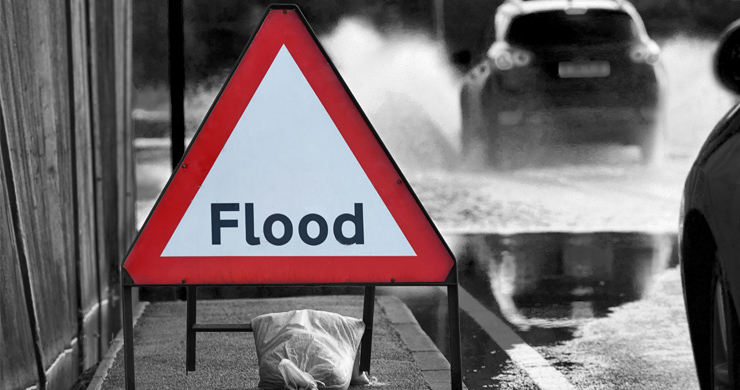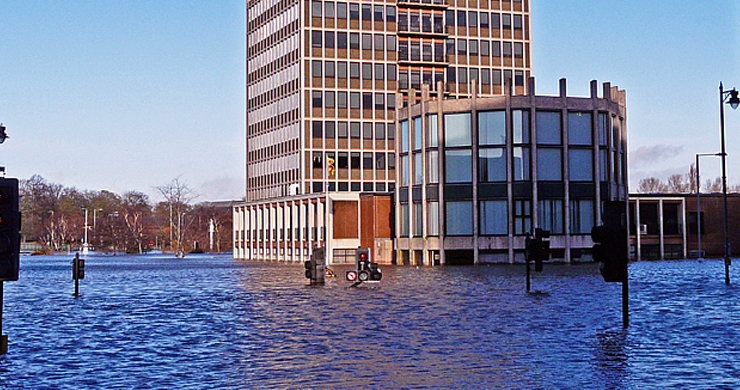Investigating winter flooding in the United Kingdom?
Why are these names special?
| Names | ||
| Abigail | Barney | Clodagh |
| Desmond | Eva | Frank |
| Gertrude | Henry | Imogen |
| Jake | Katie | Lawrence |
| Mary | Nigel | Orla |
| Phil | Rhonda | Steve |
| Tegan | Vernon | Wendy |
Why have they been in the news this winter?
© British Broadcasting Corporation (BBC)
Investigating Named Storms
In this edition of GITN we are going to investigate named storms in the UK and look at what we can do at a local level to reduce their.
In the last GITN we looked at the Paris Climate Change Agreement; this edition follows closely as we investigate storms in the United Kingdom and the flooding that they can cause.
In December 2015 Dame Julia Slingo the Chief Scientific Officer of the Met Office (Meteorological Office) described how storms such as the ones which flooded large parts of the UK were now seven times more likely to occur because of climate change.
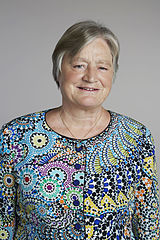
Image: Professor Dame Julia Mary Slingo DBE FRS - Royal Society uploader © Wikimedia Commons under Creative Commons Attribution-Share Alike 4.0 International
Winter 2015-2016 saw the start of a project to name certain storms in the UK and the ROI (Republic of Ireland). The Met Office is doing this to communicate more clearly which storms are more likely to cause serious problems.
The Met Office (Meteorological Office) started in 1854 and is now the main scientific organisation that studies weather and climate in the UK. It is a part of the UK government Department for Business, Innovation & Skills. Naming storms is a partnership with Met Eirann which is the equivalent organisation from the Republic of Ireland.
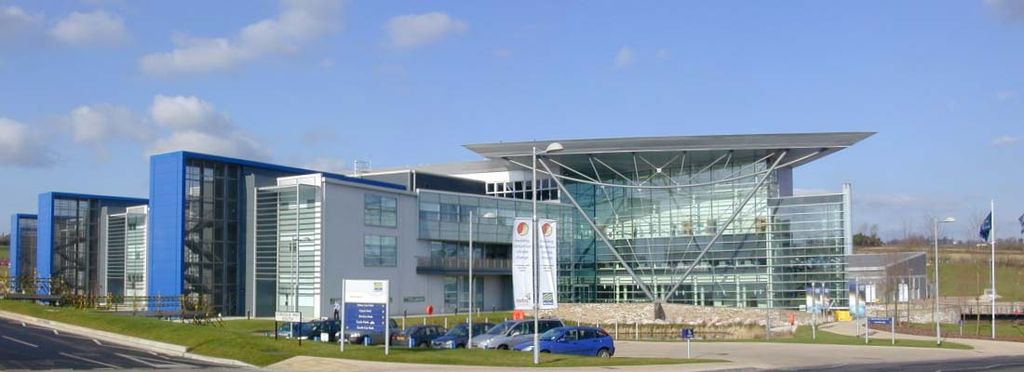
Image: Ukmo-exeter-panorama - William M. Connolley © Wikimedia Commons under Creative Commons Attribution-Share Alike 3.0 Unported
Both carried out competitions on social media such as Facebook and Twitter to choose names for storms starting in Autumn 2015. These are the first set of ‘winners’:
| Names | ||
| Abigail | Barney | Clodagh |
| Desmond | Eva | Frank |
| Gertrude | Henry | Imogen |
| Jake | Katie | Lawrence |
| Mary | Nigel | Orla |
| Phil | Rhonda | Steve |
| Tegan | Vernon | Wendy |
The letters Q, U, X & Z are not used as these are not used in other systems naming storms in the Atlantic Ocean.
Storms that have previously been named in the Atlantic are not given new names if they later travel Eastwards towards the UK. Usually these are termed ‘ex storm…name… or ex hurricane…name… a good example has been storm ‘Jonas’ which caused a huge blizzard in the USA between 22nd and 24th of January. This storm then travelled back across the Atlantic and hit Wales on the 26th of January causing very high volumes of rainfall.
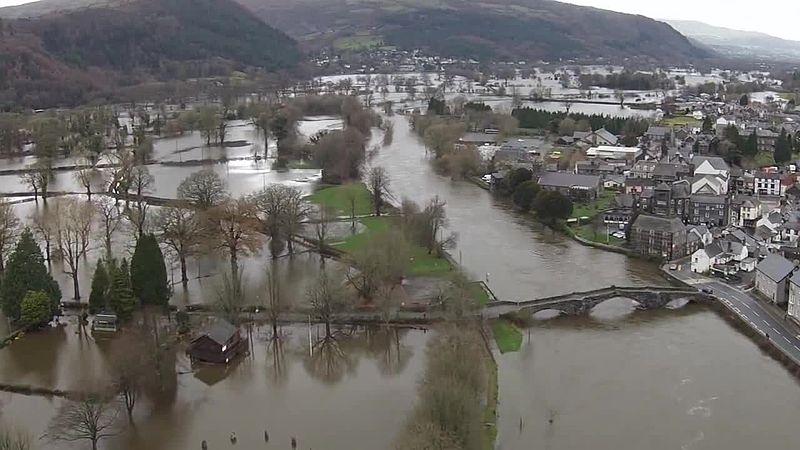
© British Broadcasting Corporation (BBC)
By naming storms it is believed that it will be easier to inform people of the need to prepare and take action to minimise the impacts on them of wind and flood damage.
This could be as easy as tying down or dismantling the trampoline in the garden so that it does not get blown through the fence or conservatory in high winds or perhaps taking valuables upstairs so that they are not destroyed by flood water.
From Abigail to Henry; November to February Wales has been ‘lucky’ in the Winter of 2015-16. Wales has been lucky because it has not suffered a ‘direct hit’ despite the record breaking weather:
- Gertrude packed the strongest winds seen in the UK for 16 years.
- 85 days of continuous rain in the village of Eglwyswrw near Cardigan starting on the 26th October. This was a Welsh record and just five days short of taking the UK record set in 1923 from Scotland.
- December was the wettest month ever on record in the UK.
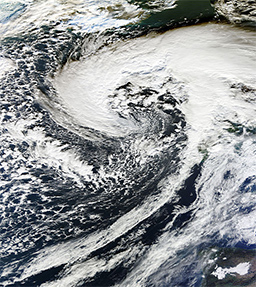
Image: Abigail Nov 12 2015 1155Z - NASA © Wikimedia Commons - Public Domain
November and December together were the wettest ever two month period. However try telling anyone in Wales affected by the floods that they were lucky and they will not be happy! Much of North West Wales was effectively cut off by road closures over Christmas.
Thousands of homes were without power and in North Wales properties were flooded especially affecting Bontnewydd, Llanrwst, Llanberis, Tal-y-Bont and Beaumaris.
© British Broadcasting Corporation (BBC)
Pupil Activity
Imagine that you live in either Bontnewydd, Llanrwst, Llanberis, Tal-y-Bont or Beaumaris.
That your home has flooded.
Try to carry out research on the place that you choose and the floods of December 2015.
You are being interviewed by the BBC for your views on how flooding has forced you out of your home and into a caravan on a holiday park 11 miles away from your home for at least the next six months and how this will affect:
- Friendships
- School life and studies
- Home family life
- Draft your ideas and reasons out first
- Write the transcript of your interview or use audio facilities to record your interview
Teacher Box
The resource is designed to be used as whole class resource from the front of the classroom on the projector/interactive whiteboard.
The various graphics should be supported by teacher exposition based on the text which will not be readable in permitted time to the vast majority of pupils), following this it is ideal that the students have access to the online resource in order to work on the activity sheet (designed to be printed on A3 size paper).
Ideally these activities will be supported by the use of a network room, tablets/laptops or students own phones/devices if permitted.
However the activities are also designed to be used in a typical one hour lesson with the teacher input using the resource from the front of the classroom alongside the resource sheet.
Students can then be set a homework task to study the three articles in advance of the following lesson.
The resource and accompanying sheet is designed to support the LNF framework while giving students key geographical knowledge about places in relation to weather and flooding.
Pupil Box
Either in class or at home read and complete the activities in the online resource article and in the linked articles in this edition of Geography in the News. Attempt to complete all of the activities in the resource sheet.
What you will learn:
- You will increase your knowledge about weather and flooding.
- You will increase your understanding of how these factors may affect human beings and human activities.
- You will have you the opportunity to learn or practice important literacy and numeracy skills.
You will learn new geographical terms highlighted in purple these should be learned and added to a glossary. A glossary is a list of words and their meanings. You could have one in the back of your geography exercise book, if you have a planner it is probably a good place to keep a glossary, or you may keep a separate glossary or word book. A good glossary helps you build your vocabulary and your literacy. Research meanings using related article content, discussion or a dictionary (either online or a book).
Related Articles...
